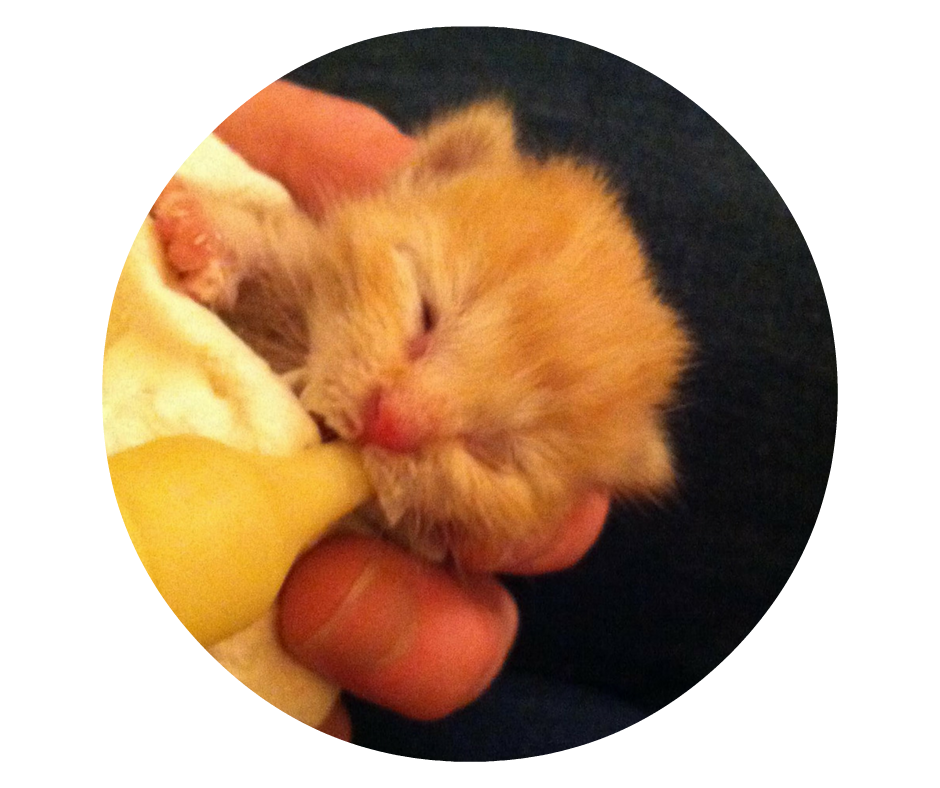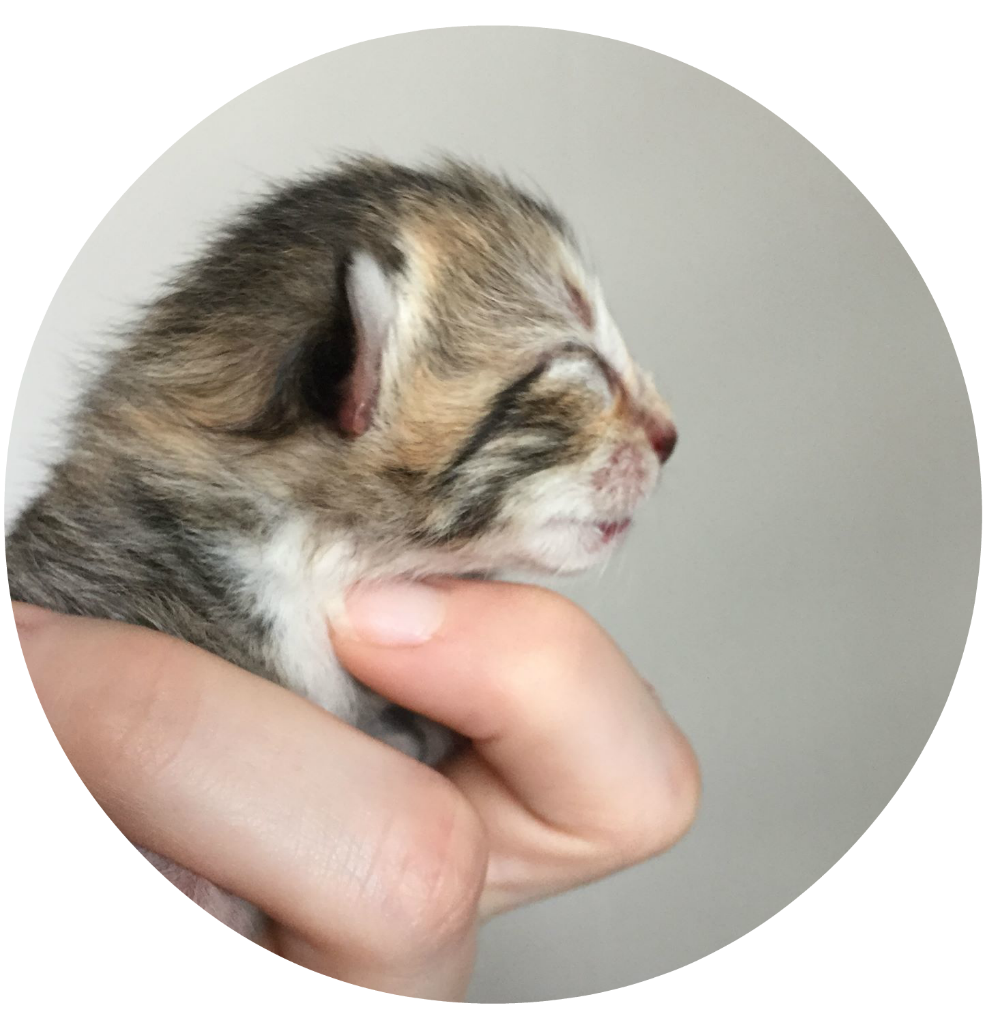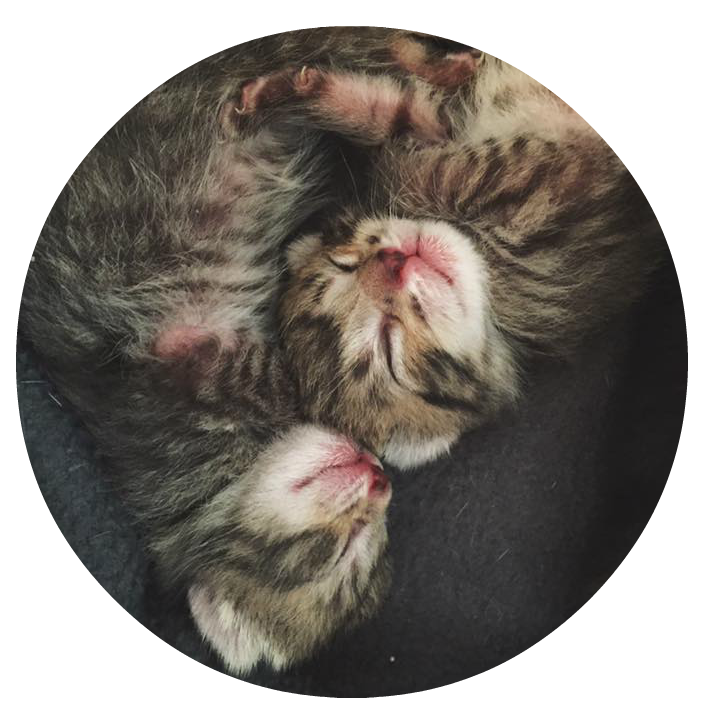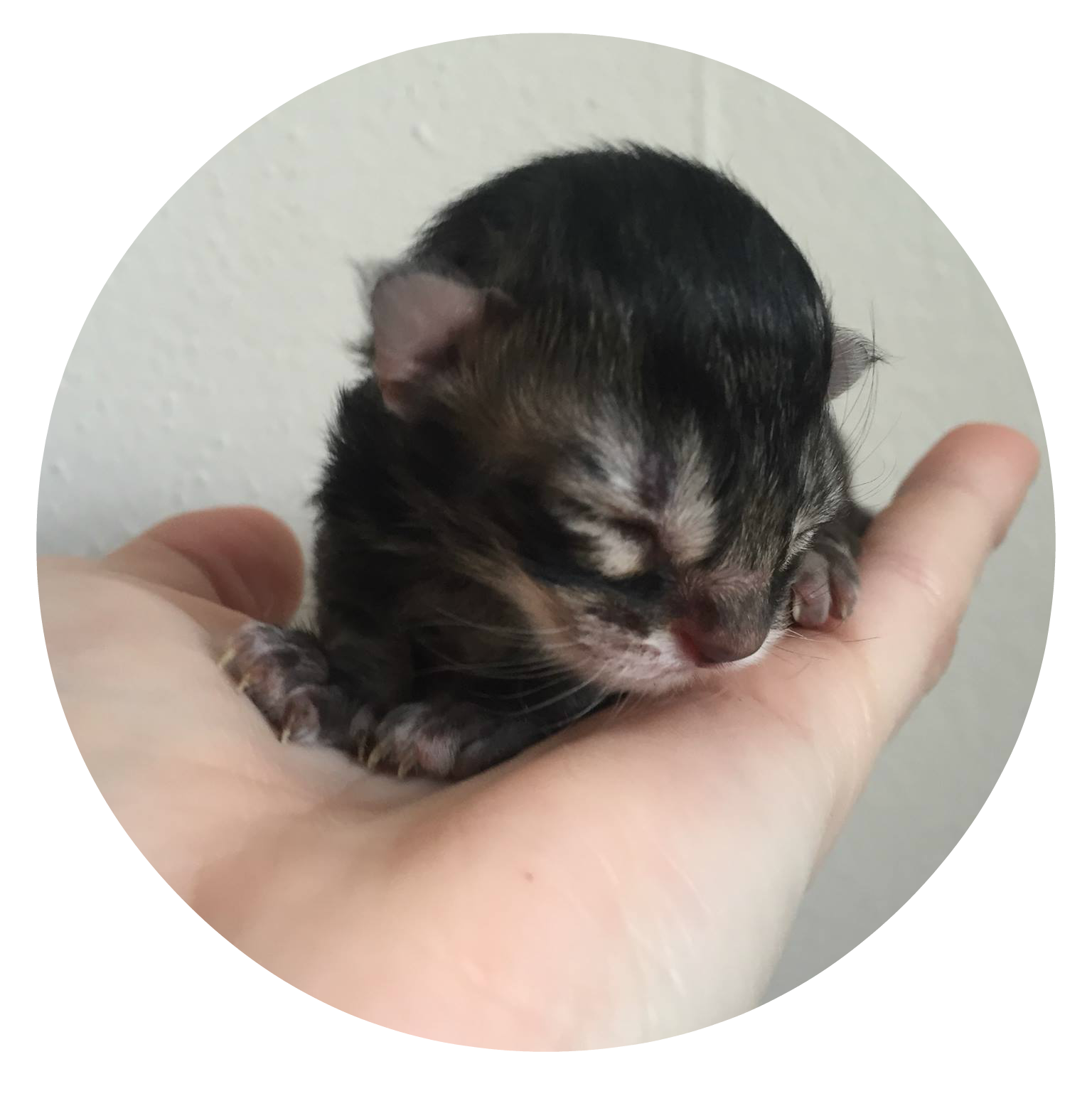Finding Kittens
Where's my mom?
What to do when you find baby cats without a mama cat.
Kitten season begins as early as January. When the weather is nice, the kittens will appear. It is this time of year when we receive the most calls from thoughtful citizens who’ve found kittens and want to know the best way to help them thrive. Hopefully, the following advice will come in handy should you ever find yourself in this situation.

BEGIN BY OBSERVING.
It's important to determine if the kittens are truly abandoned. Mom provides all of the things a newborn kitten needs. She is absolutely their best survival tool. For that reason, the kindest thing you can do for neonatal kittens is to wait nearby to see if their mother returns.
While it’s possible that the kittens you’ve found have actually been orphaned, it’s just as likely that mom is out searching for food or has begun the process of moving her brood to a safer location. Before acting, we recommend waiting quietly at least 40 feet away and as far out of sight as possible so that mom is not too intimidated by your presence to return to her little family. Many cats are terrified of humans and will not return to their babies until they know you're gone. This fear is quite natural, as she does not want to lead a potential predator to her newborns. Keep in mind that it may be several hours before she returns, especially if she is scared of humans and if she as spotted you so it's best to keep your distance unless you know the cat very well.
We generally only recommend moving cats who are in immediate danger but each situation is unique and may require individual advice. Contact a veterinarian or rescue organization like Tenth Life immediately if you need guidance while awaiting mom's return.
You may be surprised to learn that starvation is not a baby cat's biggest danger. It's actually hypothermia. Neonatal kittens can survive alone for several hours so long as they are kept sufficiently warm (but not hot) and if there are no predators who can get to them. If you can’t stick around, carefully determine whether the kittens are in imminent danger of fierce rains, extreme cold or heat, unfriendly humans, or predators and then act in the best interest of the kittens, seeking guidance as needed.
SCENARIO ONE:
MOM CAME BACK! NOW WHAT? 
If mom returns and they’re in a relatively safe place, we typically recommend allowing the family to remain together until the kittens can be weaned. It’s best if you or someone nearby is carefully monitoring the family and routinely offering food and shelter to mom, making certain that the food is quite a distance away so that other cats are not lured to her nest which might encourage her to move her kittens away from danger. Even if mom is friendly, you'll want to proceed with caution to ensure that she does not somehow become frightened and thus separated from her little family. If you can safely take mom and kittens indoors and monitor them, you can begin calling rescues to try and find help.
Immediately (and at the very least, before the kittens reach three weeks of age), we recommend contacting your veterinarian and your favorite local rescue organization for advice about weaning and socializing and to find out if placement is possible as they will need plenty of medical care and will need to be spayed or neutered as soon as they're medically ready.
 SCENARIO TWO:
SCENARIO TWO:
STILL NO SIGN OF MOM.
NOW WHAT?
If you've waited and there’s still no sign of mom and you suspect that she won’t be returning, it will likely be necessary to move the kittens in order to ensure their survival. Most organizations are full during the height of kitten season. Many, like Tenth Life, will try very hard to find space and will offer it when it is available. When full, we will walk you through caring for neonatal kittens and will recommend a veterinarian.
Even when an organization has space available, please understand that it may still be some time before a foster can arrange to take the kittens. Therefore, it’s extremely important to be prepared to provide all the care mom provides to newborn kittens such as feeding and stimulation for elimination every 2-3 hours, 24 hours a day. If you need help with familiarizing yourself with this, a veterinarian can help. We will happily do all we can to help, as well.
When transporting cold kittens, be sure to wrap a blanket or towel around a carrier to keep them warm, being careful to leave air holes to keep them safe from suffocation.
 I HAVE THE KITTENS. WHAT NOW?
I HAVE THE KITTENS. WHAT NOW?
Priority number one is to keep the kittens warm and safe! Check their temperatures (ask a veterinarian about how to do this safely) and NEVER feed a cold kitten before increasing their body temperature.
Begin by feeling each kitten’s ears and feet to find out if they’re cold to the touch. If these are cold, go ahead and feel inside of her mouth, as well. If that also feels cold, this may be life-threatening. If a kitten feels cold to the touch, you’ll need to increase her body temperature GRADUALLY. Over a period of around 20-30 minutes, safely swaddle the kitten in a baby blanket, making sure she can breathe very well. Hold her near your heart and gently rub her body with your warmed palms to safely and gradually warm her back up. All of this can be done on the way to a veterinarian or rescue to help ensure survival.
Finally, we cannot impress upon you how important it is to stop the cycle by spaying and neutering as soon as it's safe to do so. Tenth Life feels strongly that all pets should be spayed and neutered. An unbelievable and heartbreaking number of companion animals are euthanized each day because there are simply not enough homes for them. The only way to make a difference in this tragedy is education. To learn more about the importance of spaying and neutering, please read our reasons for promoting it.

WE'VE SCRATCHED THE SURFACE. WHAT'S NEXT?
We realize this is a ton of information but it's really only the tip of the iceberg. Caring for kittens is one of the most rewarding things you'll do. However, we won't kid you -- it's hard work and preparation is key. To prepare thoroughly, check out the advice provided by our friends at Best Friends Animal Society.
What age are the cats you've found? Find out HERE and HERE.

DID WE MENTION THE REWARDS?
That first photo? That's baby Albie who was just 2 days old when she came to Tenth Life. Here she is healthy and strong much, much later. She's just one example of why we do what we do.
Come be a part of it by fostering! Visit tenthlifecats.org/foster to apply.
APPLY TO ADMIT THEM TO TENTH LIFE.
While we cannot guarantee placement, we are happy to check anytime to see if we have the resources to do so. If we don't, we'll try to help you in any way we can. Click the link below to request admission and/or a spot on our wait list before heading to our resources page to search for more places which may be able to help.
For help with neonatal kittens, check out local neontal kitten rescue group, SNUGGLE, in the meantime.

ADDITIONAL RESOURCES
Kitten Lady's instructional kitten care videos can be found here and are extremely informative and helpful for all things regarding neonatal kitten care. You can also find her manual for help with caring well for orphaned kittens here.
Feeding Bottle Babies by Best Friends Animal Society
More advice about finding neonatal kittens by Animal Alliance if NYC
STL Local Neontal Kitten Rescue Group: http://www.snuggle-petrescue.com/
What age are the cats you've found? Find out HERE and HERE.
INSTRUCTIONAL VIDEOS
How to Bottle Feed an Orphaned Kitten by Maddie's Institute
Bottle Feeding Kittens by Austin Pets Alive
Raising Orphan Kittens by Itty Bitty Orphan Kitty Rescue
Still have questions? Email admissions@tenthlifecats.org anytime!